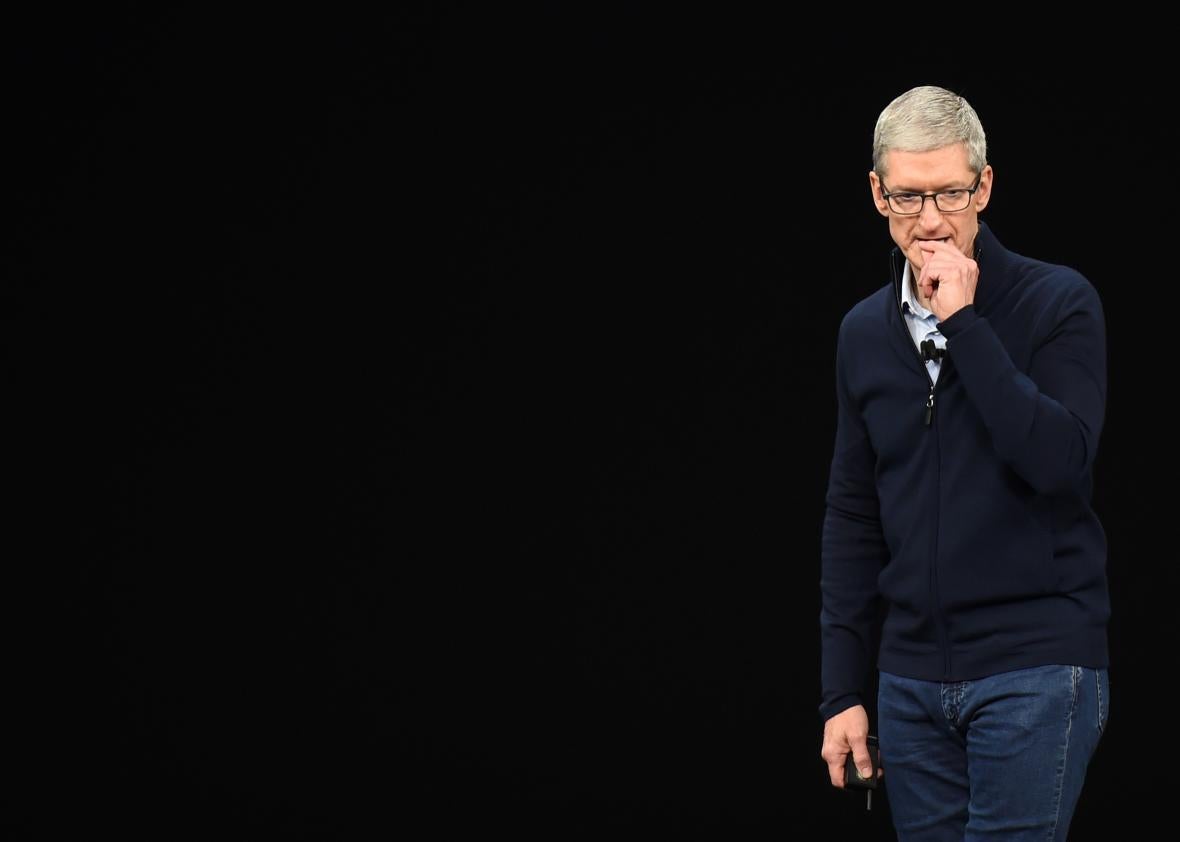Apple just said something it rarely says: “We apologize.”
In a “message to our customers” on the Apple website, the world’s most valuable company acknowledged Thursday afternoon that it should have been more transparent about a feature that slows down older iPhones as their batteries age. That long-unacknowledged feature, which Apple said was actually intended to extend a device’s useful life, had fueled conspiracy theories about planned obsolescence. Specifically, people had speculated that the company was degrading old phones’ performance via software update in order to prod them to buy new ones.
As a gesture to back up the apology, the company is cutting the price of a replacement battery from $79 to $29 for “anyone with an iPhone 6 or later whose battery needs to be replaced.” The offer will take effect in late January, the company said, and it will post further details soon on its website.
Apple added that it’s working on an iOS software update that will offer iPhone owners more insight into the health of their batteries. That update should be available “early in 2018,” the company said.
Here’s an excerpt from Apple’s note:
We’ve been hearing feedback from our customers about the way we handle performance for iPhones with older batteries and how we have communicated that process. We know that some of you feel Apple has let you down. We apologize. There’s been a lot of misunderstanding about this issue, so we would like to clarify and let you know about some changes we’re making.
First and foremost, we have never—and would never—do anything to intentionally shorten the life of any Apple product, or degrade the user experience to drive customer upgrades. Our goal has always been to create products that our customers love, and making iPhones last as long as possible is an important part of that.
The note goes on to explain the slowdown feature in depth, something Apple had not done before now. Apple first acknowledged it last week, but only after Geekbench and a Redditor had correctly guessed what was going on and published compelling evidence.
The explanation made sense and probably would have quieted the rumors—if only Apple had told people what it was doing from the get-go, or at least addressed the issue of its own accord. Instead, the company hewed to its ethic of secrecy until it was caught red-handed. In doing so, I argued last week, it both undermined its credibility and called additional attention to its flagship products’ limited life span.
The company’s full message is worth reading for those interested in the technical details, as is the original Geekbench post that provoked Apple’s response. Here’s a little more from Apple’s official explanation:
About a year ago in iOS 10.2.1, we delivered a software update that improves power management during peak workloads to avoid unexpected shutdowns on iPhone 6, iPhone 6 Plus, iPhone 6s, iPhone 6s Plus, and iPhone SE. With the update, iOS dynamically manages the maximum performance of some system components when needed to prevent a shutdown. While these changes may go unnoticed, in some cases users may experience longer launch times for apps and other reductions in performance.
Apple has also posted a new support page titled “iPhone battery and performance,” explaining how lithium-ion batteries age and the mechanisms the company has built into the iPhone and iOS to deal with that. Again, all of this is nice—and would have been nicer had Apple done it long ago.
Previously in Slate: What’s Wrong With Apple “Slowing Down” Older iPhones
